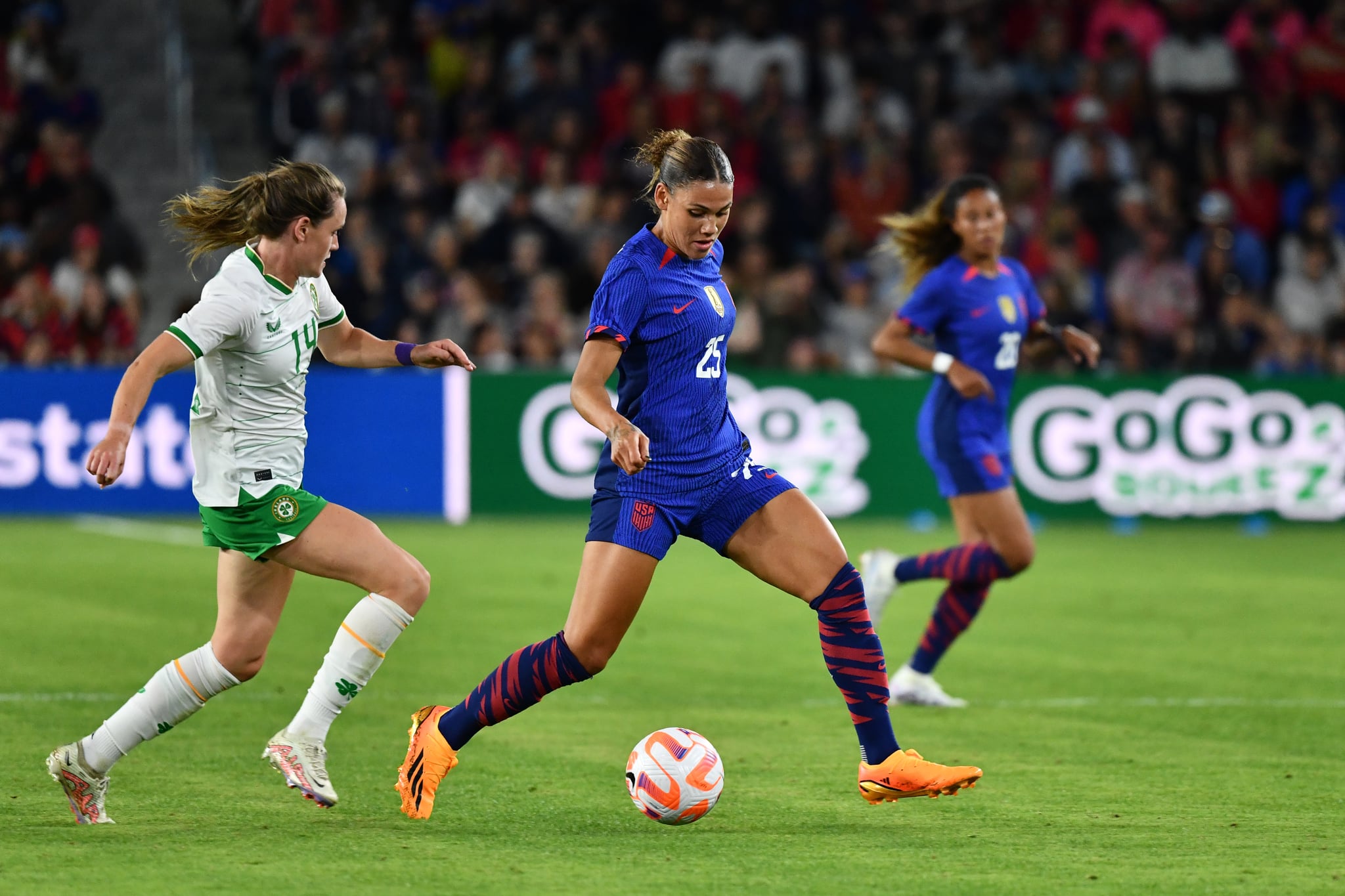Products You May Like
If you’re getting ready to make your viewing plans for the 2023 FIFA World Cup, then there’s one very important question that’s probably on your mind: how long is a soccer match? Fortunately, the timing is one of the easiest parts of the game to follow. Matches stick to a specific schedule, without a bunch of interruptions, and the standard time is the same for the World Cup as it is for “regular season” games.
How Long Is a Soccer Game?
According to the rules of the game, as laid out by the International Football Association Board (IFAB), a standard soccer match lasts for 90 minutes of gameplay. This is divided into two equal halves of 45 minutes each. Additionally, there is one halftime break that is allowed to last for no more than 15 minutes.
If the game goes into extra time (more on that in a moment), another one-minute “drinks break” is allowed at the “halftime” of the extra period. The timing of both men’s and women’s soccer is the same, and the rules remain the same for the Olympics, for the World Cup, and for “regular” games outside of these major tournaments.
Is There Overtime in Soccer?
In “regular” soccer games — outside of tournaments like the Olympics or the World Cup — soccer doesn’t usually go into “overtime.” If a game is tied at the end of the 90 minutes of regular play, it simply ends in a tie. Soccer, unlike many other sports, does allow for games to end in a tie, and the ranking systems have ways to reflect that.
At tournaments where a winner must be determined (i.e. at the World Cup), soccer does have overtime rules. In those cases, if a match is tied at the end of the regulation 90 minutes of gameplay, the game goes into an extra period, or what other sports might call “overtime.” According to current FIFA rules, this extra period consists of two, 15-minute periods added on at the end of regulation time, with the above-mentioned mini-halftime of a one-minute drinks break. If the game is still tied at the end of these 30 minutes of extra play, then the game’s outcome will be determined by a penalty shootout.
Can Time Be Added to Soccer Games?
While the official gameplay for a given match must be exactly 90 minutes, that doesn’t mean that it’s played straight through with no stops, starts, or resets. According to IFAB’s rules, referees can make allowances for time “lost” through various events in each half. The list includes:
- substitutions
- assessment and/or removal of injured players
- wasting time
- disciplinary sanctions
- medical stoppages permitted by competition rules, e.g. “drinks” breaks
(which should not exceed one minute) and “cooling” breaks (ninety seconds
to three minutes) - delays relating to video assistant referee (VAR) checks and reviews
- any other cause, including any significant delay to a restart (e.g. goal celebrations)
These choices are largely left to the discretion of the referees. The only other main “rule” is that a timekeeping error in the first half cannot be compensated for by adding extra time to the second half. Also worth noting: there are no timeouts for the team to huddle and discuss strategy, as is common in other sports.
Does TV Affect the Length of Soccer Games?
Technically, no. Being televised doesn’t really impact the actual length of soccer matches. The rules lay out how long the gameplay lasts and how long halftime lasts, so it’s not as if broadcasters can change those things. Most soccer matches are broadcast straight through, without commercial breaks — which is very different from how some other sports, like American football or baseball, are broadcast.
Image Source: Getty / Bill Barrett/USSF
